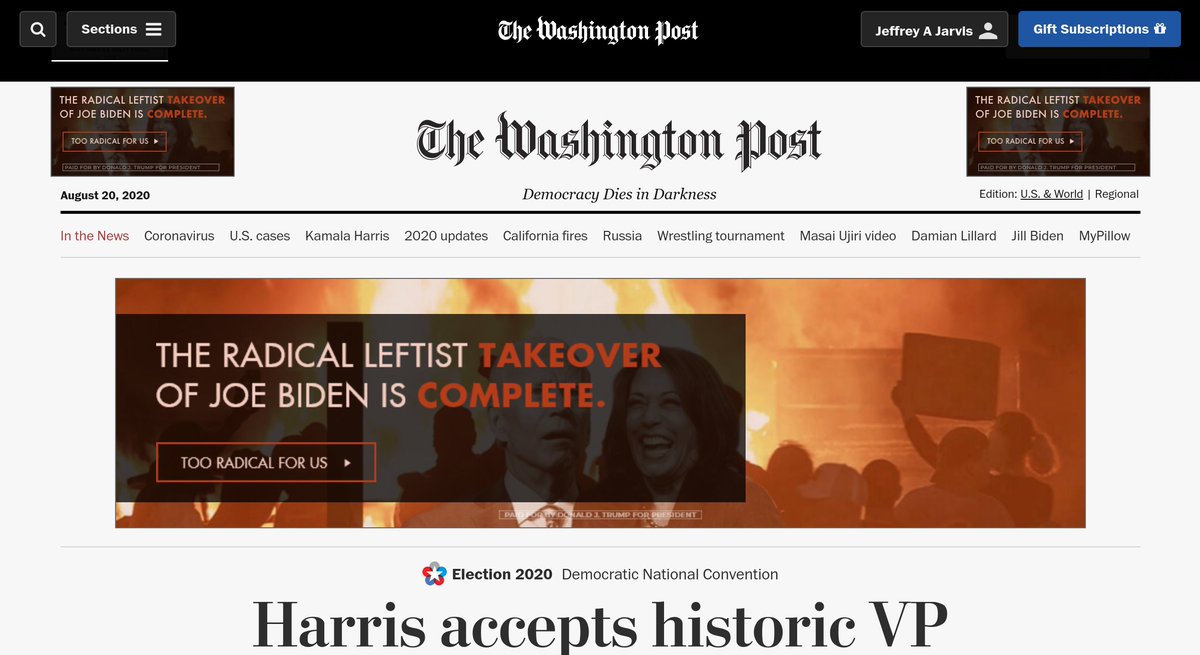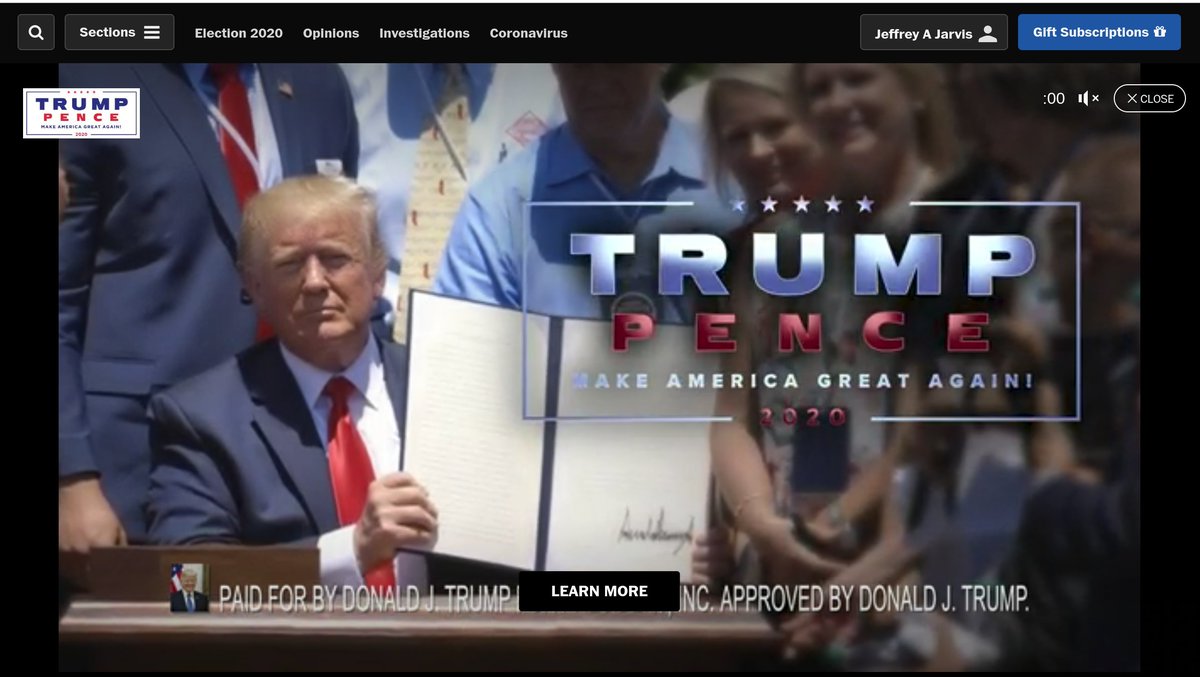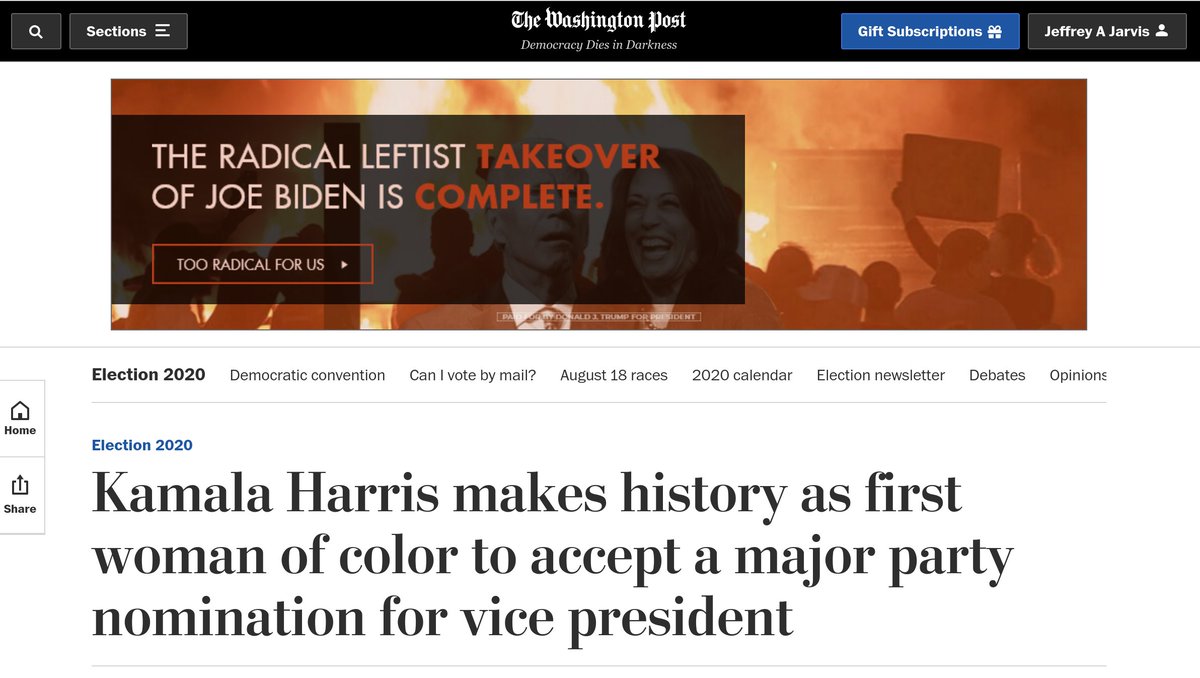
Ad executive I used to respect just blocked me after I criticized him for wanting to block the voices on social media. These are the people who decide what media and what voices in social media get their support and do not. Looking for people who are too powefful? Start there.
I sat in a room with other ad execs who, with enough wine, admitted they don't want to be anywhere near news and don't care about supporting it. The only reason they care about news is their stock prices, they said. This is how they use their financial power.
What ruined the internet? The attention-based, advertiser-paid business model imported from mass media. Looking for whom to blame for a worsened net? Follow the fucking money. It will lead you back to advertisers.
Advertisers have abandoned media for programmatic algorithms, by no means only on social media. Thus they commoditize and devalue media. They abandon media. So media turn to paywalls, which redlines journalism for the privileged.
Every institution is challenged by change and showing its true nature, from media to marketing, from politics to policing, from retail to banking. A few who held power may survive if they change enough. The rest will all be replaced.
I held an event with media executives in which a leading programmatic ad exec scolded the media people for putting their inventory there, commoditizing themselves. Media people replied they had no choice because that's where the advertisers have put their money, into algos.
The lovely irony of advertisers moving to programmatic algos and otherwise abandoning media, especially news, is that they lose their clout, their power lunches, their access, their personal status as the sucked-up-to. Oh, how it hurts them.
I think there will be advertising in the future. I wrote in What Would Google Do? that advertising is failure--when a product fails to sell itself, when its customers don't market it--and so it will continue. But it must be reinvented and that won't be by the old ad guard.
Advertising is *way* behind because nobody wanted to tell the guy with the checkbook that he was wrong, behind, foolish. Now their beloved market is telling them that. And they hate it.
In WWGD? I wrote that marketing must change to become a means to listen to customers, not feed them messages. Hear the Cluetrain Manifesto: Markets are conversations. Advertisers--clients and agencies--still refuse to learn that because that would mean giving up power.
So, yes, I think advertising will continue but it is due for volcanic disruption. The old guard will be gone.
• • •
Missing some Tweet in this thread? You can try to
force a refresh






